The Great British Bake Off: Channel 4's gamble has paid off
- Published
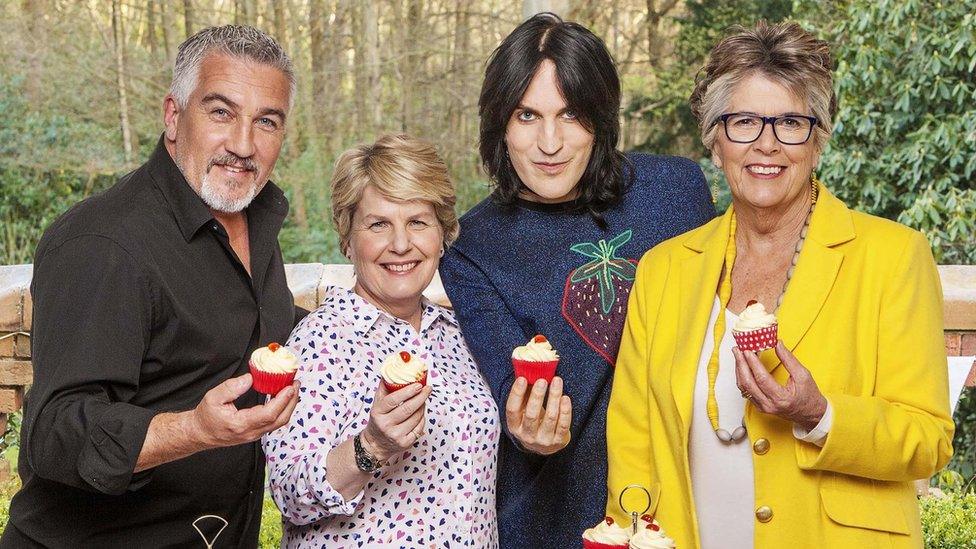
The new line-up has wide appeal and good chemistry
Many fans feared that The Great British Bake Off might spoil when it went to Channel 4. So the success of this series must taste particularly sweet.
There were some funny moments at Jay Hunt and David Abraham's leaving party at Channel 4 a few weeks ago.
The chief creative officer and chief executive had gathered journalists, colleagues, friends and programme makers for a boozy farewell.
Three members of boy band Blue turned up and sang. A video of tributes and thank yous featuring famous people associated with Channel 4 was played, to ringing applause. Then the stars of Bake Off turned up.
Paul Hollywood wasn't there, but Prue Leith, Sandi Toksvig and Noel Fielding were. Leith said she'd never been paid so much to eat cake. Everything Toksvig said was funny.
Then Fielding produced the most memorable line of the evening, when he addressed the crowd and said (I paraphrase slightly): "Be honest, you thought we were gonna flop! Didn't you?!"
Everyone laughed, because everyone knew he was right.
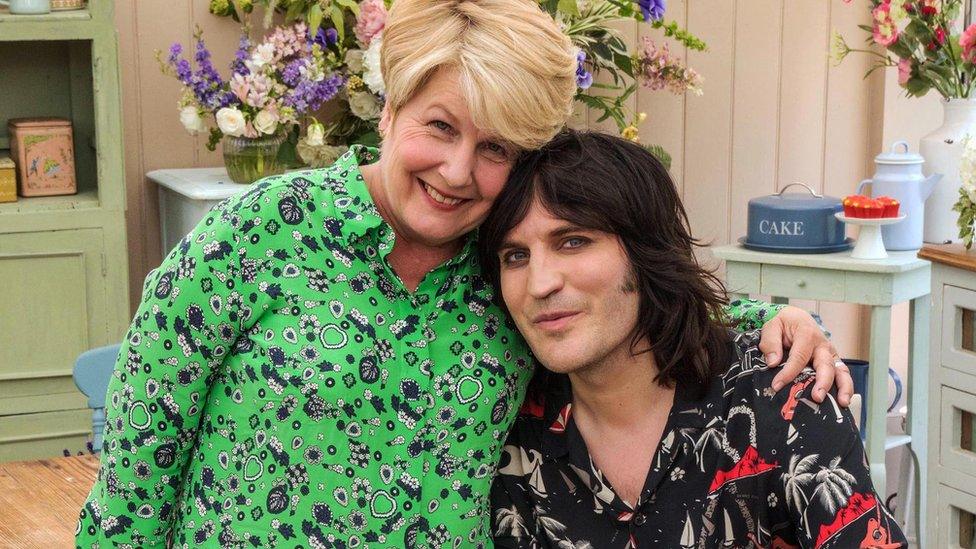
Sandi Toksvig and Noel Fielding have formed an unlikely double act
The decision by Channel 4 to bid for Bake Off was widely interpreted in the industry as reckless, naive, hubristic - or some combination of all three.
Dozens of industry people I spoke to used the same line - without the "talent" (Sue Perkins, Mel Giedroyc and Mary Berry all declined to move across), Channel 4 had basically just paid for a tent. This was the conventional thinking.
Conventional thinking has a habit of being wrong. It also has a seductive appeal. It is absolutely true that Channel 4 was taking a huge punt in buying the show without three quarters of its stars. That is why the reward they are now getting must taste particularly good.
Ratings success
The numbers are, to those in Horseferry Road, where Channel 4 is still headquartered, the stuff of dreams.
TV viewing figures now come in at least two groups - mainly the overnights and consolidated. In overnights, the show is getting around six million viewers. In terms of consolidated reach - the number of people who see a particular episode over a seven-day period - this rises to 8.9 million.
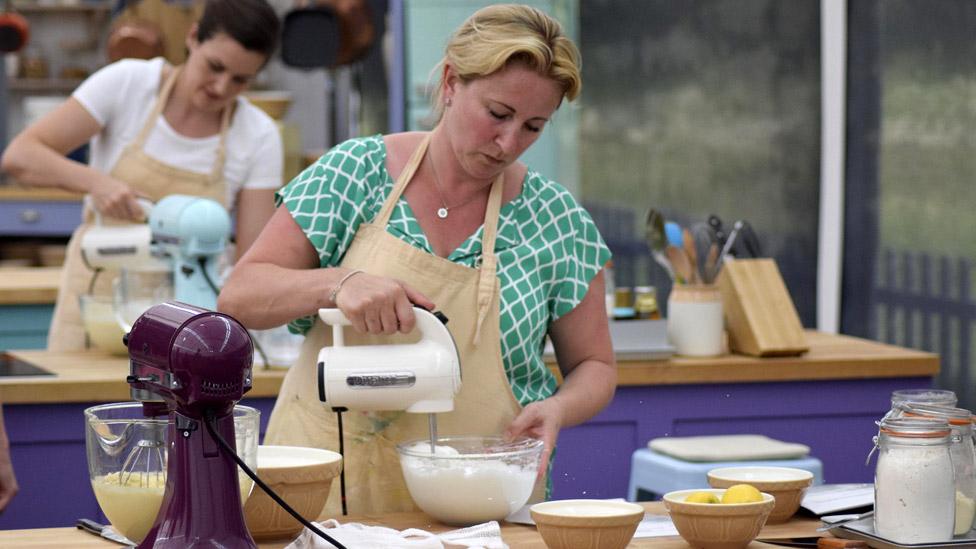
Stacey was eliminated in the semi-final
True, this is down from the 13 million the show reached on BBC One. But bearing in mind that BBC One generally gets the biggest audiences in the land, Channel 4 will be chuffed.
And especially because in the prized 16-34 demographic (those who apparently are running away from conventional TV), they are scoring 2.5 million viewers - or a whopping 54% of market share.
Fielding, Toksvig, Leith and Hollywood are earning their meringues - and Channel 4 appears to agree as all four are back for next year's series.
Digital competition
As digital giants like Amazon, Apple, Google, Facebook and Netflix move into television, conventional broadcasters like Channel 4 are having to fight much, much harder for eyeballs and advertising revenue.
That means they rely ever more heavily on superstar shows such as Bake Off, which bring in the revenues to fund other expensive programming that - in Channel 4 and the BBC's case - meets a public service remit.
The irony, of course, is that Jay Hunt and David Abraham are off to new ventures just as Bake Off brings in the cash. The latter is probably going to set up his own company, but remains tight-lipped.
For Hunt, a former BBC and Channel 5 executive who missed out on the top job at Channel 4, and is now moving to Apple, this is in effect a parting gift to her colleagues.
Taking risks
Though Abraham was her superior, it was Hunt who was most closely associated with the Bake Off transfer, and who made the ultimate decision on the new line-up.
That line-up was carefully selected to combine an appeal to various demographics - Fielding brings a following from his Never Mind the Buzzcocks days; Toksvig is a Radio 4 giant; Leith has real pedigree in the world of food - with on-screen chemistry, which is undoubtedly there.
Their current success may not last, but it is worth bearing in mind that most shows take time to build an audience in a new place, as critics of former Fox anchor Megyn Kelly's new show on NBC should remember.
And it is in the nature of Bake Off, which is a competition, that as it builds towards a thrilling finale, its ratings could rise. So the best may be yet to come.
I suspect that when she met Apple, Hunt will have pointed to the success of Bake Off as an indication of her eye for talent and preparedness to take creative risks that are later vindicated.
The show was never going to achieve the same audience it did on BBC One. For now, it looks a canny investment. But when the show is put out to tender again in a couple of years, might Channel 4 find itself bidding against Apple?
- Published6 September 2017
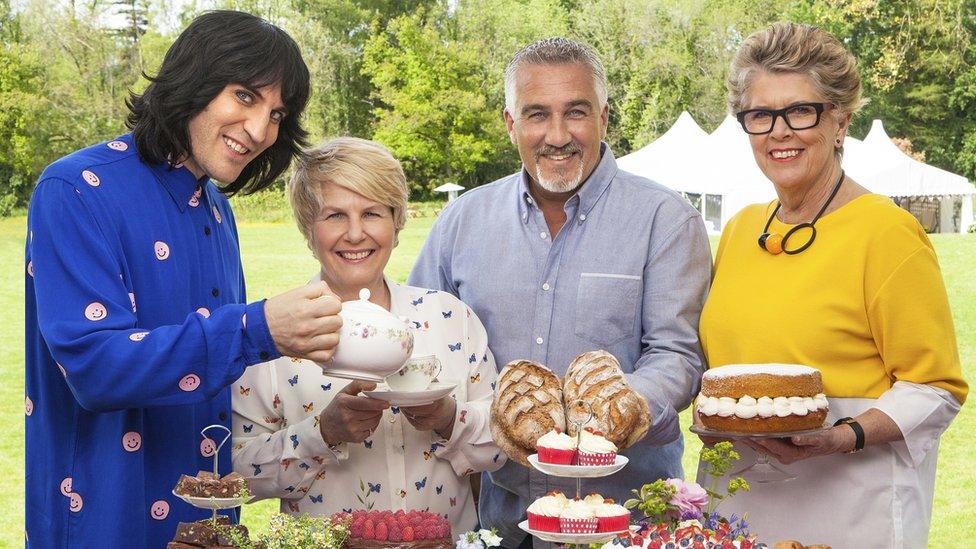
- Published30 August 2017

- Published29 August 2017
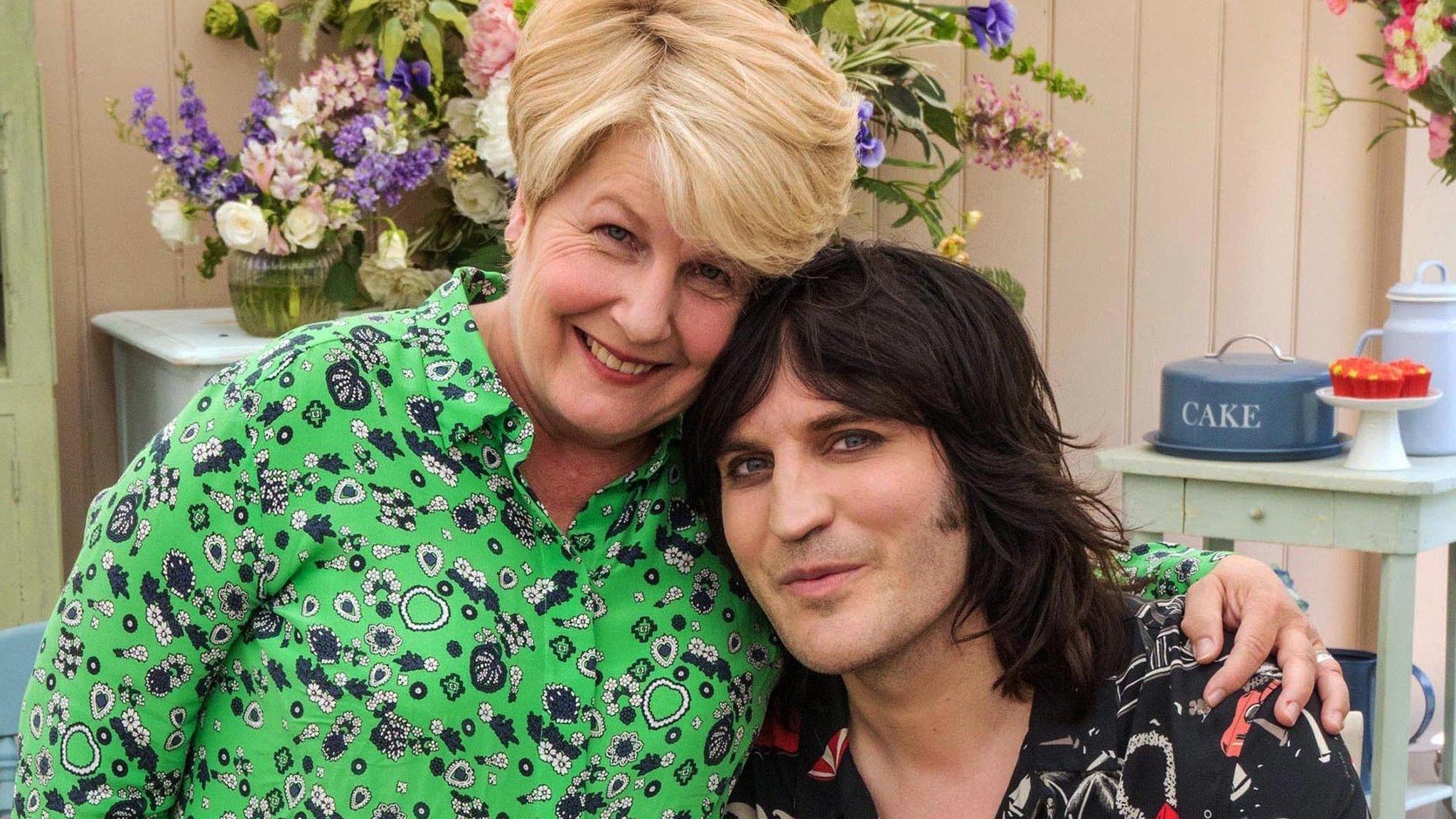
- Published22 August 2017
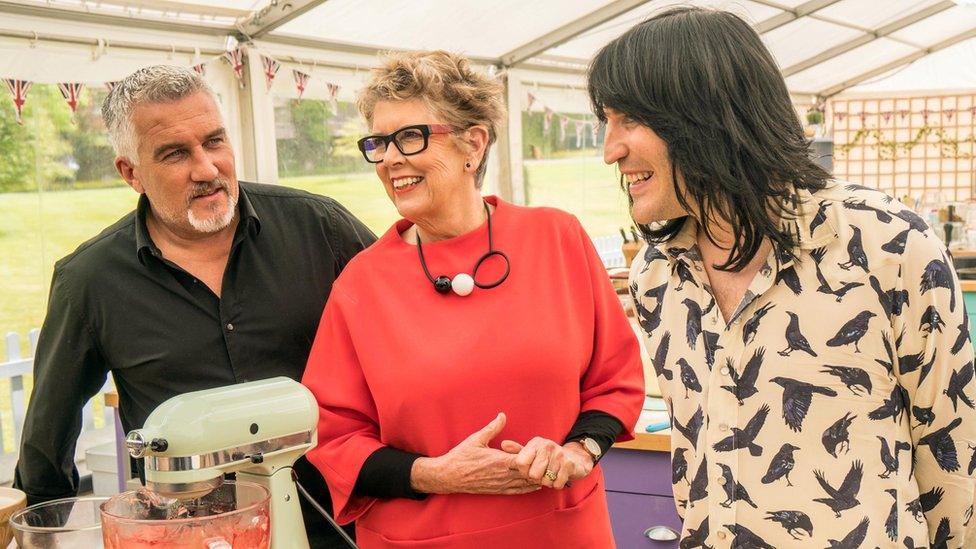
- Published29 August 2017

- Published22 August 2017
